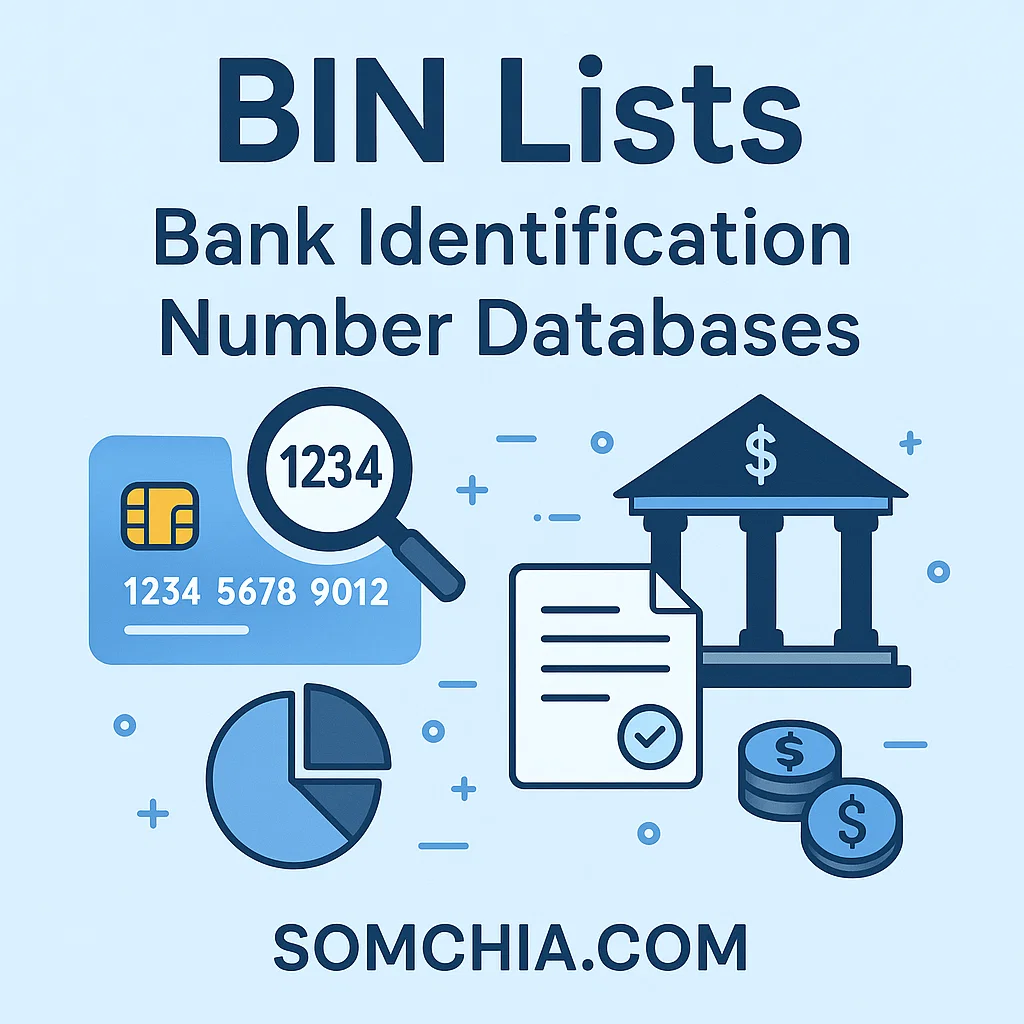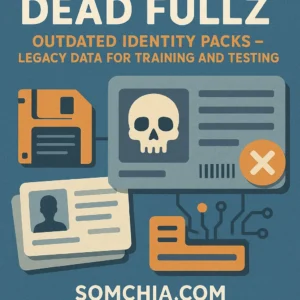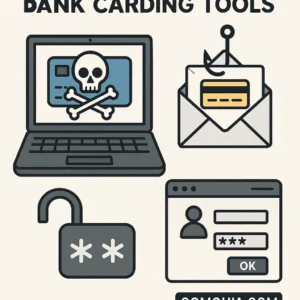BIN Lists – Bank Identification Number Databases – Targeted Issuer and Card Type Intelligence
$300.00
Our BIN lists are sourced from live card transaction analysis, breach intelligence, and payment processor leaks.
Each BIN record includes:
✅ Issuer Name & Address
✅ Card Brand & Network
✅ Card Type & Level
✅ Country of Issuance
✅ 3D Secure Status (if available)
✅ Known Fraud Risk Level
Description
What Are BIN Lists?
BIN Lists are curated databases of Bank Identification Numbers (BINs) — the first 6 to 8 digits of a payment card number that identify the issuing bank, card type, network, and country of origin.
These lists are essential for fraud simulation, payment gateway testing, and targeting specific card issuer weaknesses. BIN data allows researchers to filter payment cards by:
-
Issuing Bank
-
Card Brand (Visa, MasterCard, AmEx, Discover, etc.)
-
Card Type (Credit, Debit, Prepaid, Corporate)
-
Card Level (Classic, Gold, Platinum, Infinite, World Elite)
-
Country of Issuance
-
Bank Contact & Address Information
-
3D Secure Status (Yes/No)
They are a foundational intelligence tool for both fraud prevention teams and threat actors.
Why Are BIN Lists So Valuable?
BIN data transforms random payment card data into targeted, actionable intelligence. Instead of testing cards blindly, BIN lists allow precise targeting for maximum approval rates and reduced declines.
✅ Identify issuers with weak fraud screening
✅ Filter for high-limit corporate or premium cards
✅ Focus on regions with outdated security standards
✅ Avoid prepaid cards or high-fraud-rejection BINs
✅ Enable geo-specific carding campaigns
In underground markets, BIN targeting is a prerequisite for large-scale fraud operations — and in cybersecurity, it’s the blueprint for stress-testing merchant defenses.
Real-World Use Cases (Fraud Operator Notes)
1. High-Approval BIN Targeting
-
Fraud actors run BINs known for low 3D Secure enforcement.
-
Increases success rates on CNP (Card-Not-Present) transactions.
2. Regional Carding Campaigns
-
Target BINs from countries with less advanced payment security.
-
Focuses attacks where fraud detection algorithms are outdated.
3. Filtering Out Low-Value Cards
-
Removes prepaid and low-limit cards from dump or CVV datasets.
-
Prioritizes cards likely to approve high-ticket transactions.
4. Merchant Category Optimization
-
Matches BINs to merchant types that issuers allow without strong AVS checks.
5. Fraud Prevention Testing
-
Used by security teams to pre-flag BINs with known fraud histories.
-
Helps block compromised ranges before transactions occur.
Product Quality & Features
Our BIN lists are sourced from live card transaction analysis, breach intelligence, and payment processor leaks.
Each BIN record includes:
✅ Issuer Name & Address
✅ Card Brand & Network
✅ Card Type & Level
✅ Country of Issuance
✅ 3D Secure Status (if available)
✅ Known Fraud Risk Level
Formats: .CSV, .XLS, .TXT — sortable & filterable.
Update Frequency: Weekly refreshed with new issuers.
Data Range: Visa, MasterCard, AmEx, Discover, UnionPay, JCB.
Geolocation Options
-
Global BIN Lists (Full Database)
-
North America
-
Europe
-
Asia-Pacific
-
Latin America
-
Custom regional BIN datasets
OPSEC Tips for Buyers
-
Always pair BIN targeting with fresh CVV or Fullz data for realistic testing.
-
Use offline sorting tools to avoid leaking target BIN info online.
-
Avoid combining BIN datasets with live fraud testing on unapproved platforms.
⚠️ Legal Disclaimer
This product is provided for cybersecurity research, fraud prevention training, and payment system analysis only.
Using BIN lists for unauthorized fraud or exploitation is illegal and punishable under global laws.
We do not endorse or promote criminal activity.
Suggested Pairing Products
-
Fresh CVV Dumps (Non-EMV)
-
BIN Targeting Fraud Playbook
-
Fullz Pack (Matching Identity Data)
-
E-Commerce Fraud Testing Kit
-
Payment Gateway Vulnerability Report





